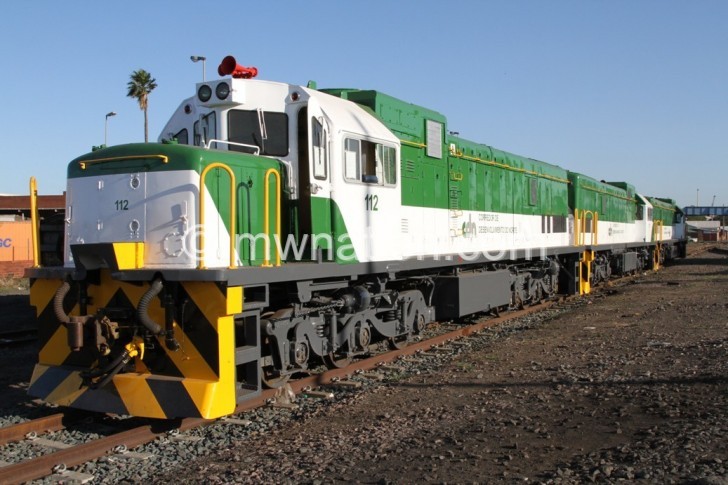Rail network in state capture
Local and international commentators have blamed politicians for failing to take a decisive action to maintain the country’s railway system and connect to the regional network to facilitate trade and reduce landing costs to and from the ports.
As a result, Malawi’s transport costs are the highest in the region at 56 percent of the landed cost of imports and 30 percent of exports.

According to a recent Malawi Confederation of Chambers of Commerce and Industry (MCCCI) Malawi Business Climate Survey, about 60 percent of exporters have expressed concern over high transport costs which make the country’s products uncompetitive at the international market.
But government says it is prioritising railway development in the Malawi Growth and Development Strategy (MGDS) III aimed at reducing transport costs.
Yet the same government says it needs $800 million (about K564 billion) to rehabilitate sections of the railway line from Limbe to Beira and Mchinji to Nkaya in the next three years which the government does not have.
Consumer Association of Malawi (Cama) executive director John Kapito rubbished the assertions in a telephone in an interview that Malawi is prioritising railway development, saying since 1994 the country has been held at ransom by selfish politicians in government.
Said Kapito: “Over the years, we have seen a demonstration of State capture where politicians in government have taken the country to ransom. The failure to develop the railway sector to its fullest shows how much these politicians continue to sabotage the sector in order to utilise the advantage and make money through road haulage transport. Unfortunately, this is only pushing the landing costs upwards and translating to depleted incomes for Malawians.”
He also said the insistence by the country to use road transport is putting a strain on the road infrastructure and triggering inflation.
Malawi uses road transport to ferry goods from Durban port in South Africa which is 2 280 kilometres (km) away and Dar es Salaam which is 1 783 km away, when it can access by rail the Mozambican ports of Beira and Nacala which are only 452 km and 624 km away.
Kapito’s remarks also come after former Norwegian Ambassador in Malawi Asbjorn Eidhammer wrote in his latest book Malawi: A Place Apart that despite the business sense that railway transport provides and its economic benefits to the country, the United Democratic Party-led government showed no political will to fully utilise the sector.
Eidhammer argues that despite Nacala Corridor narrative dominating the political agenda between 1999 and 2003, plans to upgrade the road and railway to reconnect Malawi to the Nacala harbour were sabotaged by the then United Democratic Front (UDF) government.
He said although the private sector wanted it to be rehabilitated with the backing of American investors and donors, the Malawi Government did not do much to follow up an investment conference between Malawi and Mozambique in 2003.
Ben Kaluwa, professor of economics at University of Malawi’s Chancellor College said the country needs to fully utilise railway transport as it would have a direct bearing on the prices of goods.
“Railway is the second cheapest mode of transportation and using it to transport both imports and exports would greatly reduce costs. Our exports would suddenly become competitive on the international market while prices of imported goods would be reduced,” he said.
Currently, Central East African Railways (Cear) said on its own it has embarked on the rehabilitation of the railway system in the country and has rehabilitated 101-km railway between Nayunchi and Nkaya.
Over the past three decades, the country has seen the dilapidation of the country’s railway system with some sections such as the Limbe-Makhanga being washed away and vandalised. Some sections that have similarly been affected are between Balaka and Salima.
But Ministry of Finance, Economic Planning and Development spokesperson David Sado on Tuesday defended the government, saying it is doing a lot to promote the sector.
“The development of railways is part of the priorities for Malawi in the MGDS III. It falls under key priority area number four which is Transport and ICT Infrastructure. Under this priority area, the aim is to develop all modes of transport which include roads, rail, air and water transport. Thus, improvement of railway transport is key among the transport modes being focused on,” he said.
Transport Ministry spokesperson James Chakwera on Thursday in an e-mailed response said government has adopted a public private partnership (PPP) approach with concessions sealed with Cear and Vale Logistics.
However, he said the country needs to do more to open up the country to its regional borders using railway. “What needs to be done now is to resuscitate the Sena line to the Beira Port,” he said.






Bakili had his own trucks and so he never wanted the trains to mess up with his personal transportation business. The crook even used his trucks to siphon away maize in the govt food reserves and sell it in DRC and Kenya. The govt never saw a penny from the sales. Anyamata amu town. When drought struck and there was no maize in the silos, he claimed IMF and the World Bank had advised the country to sell off all its maize. He conveniently left out the part of the advice that said the money realized should be used to buy fresh maize and restock the silos.